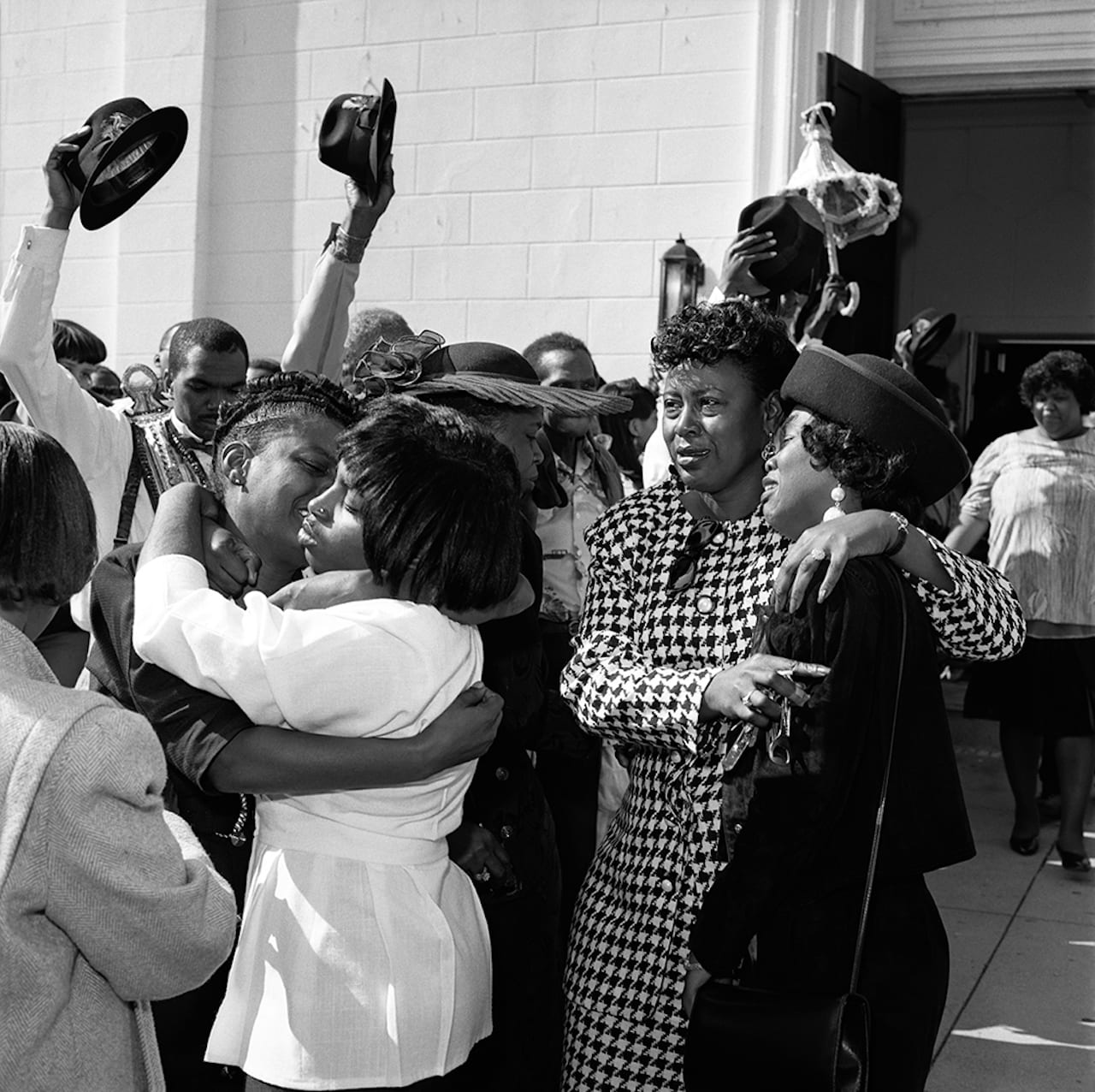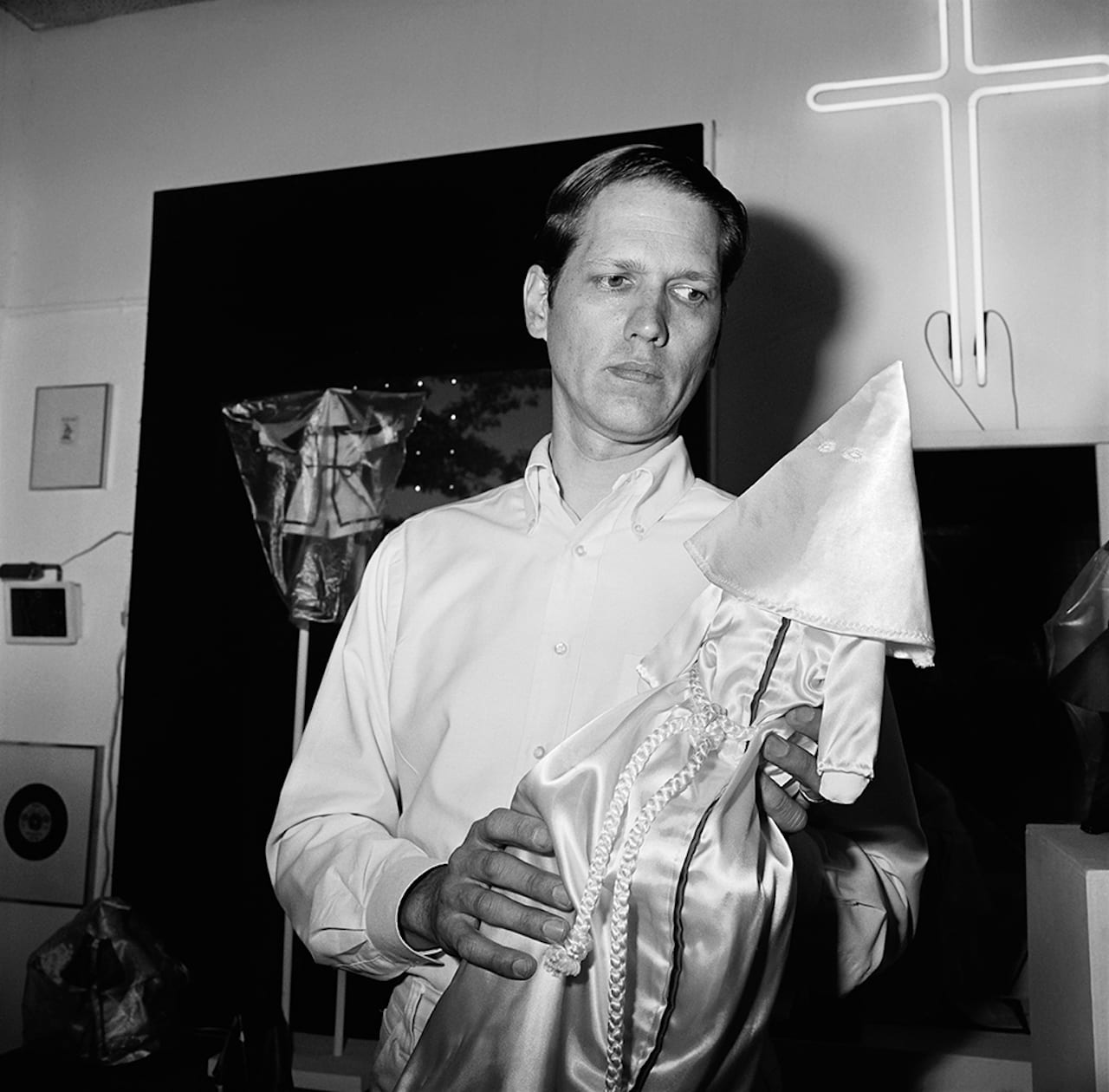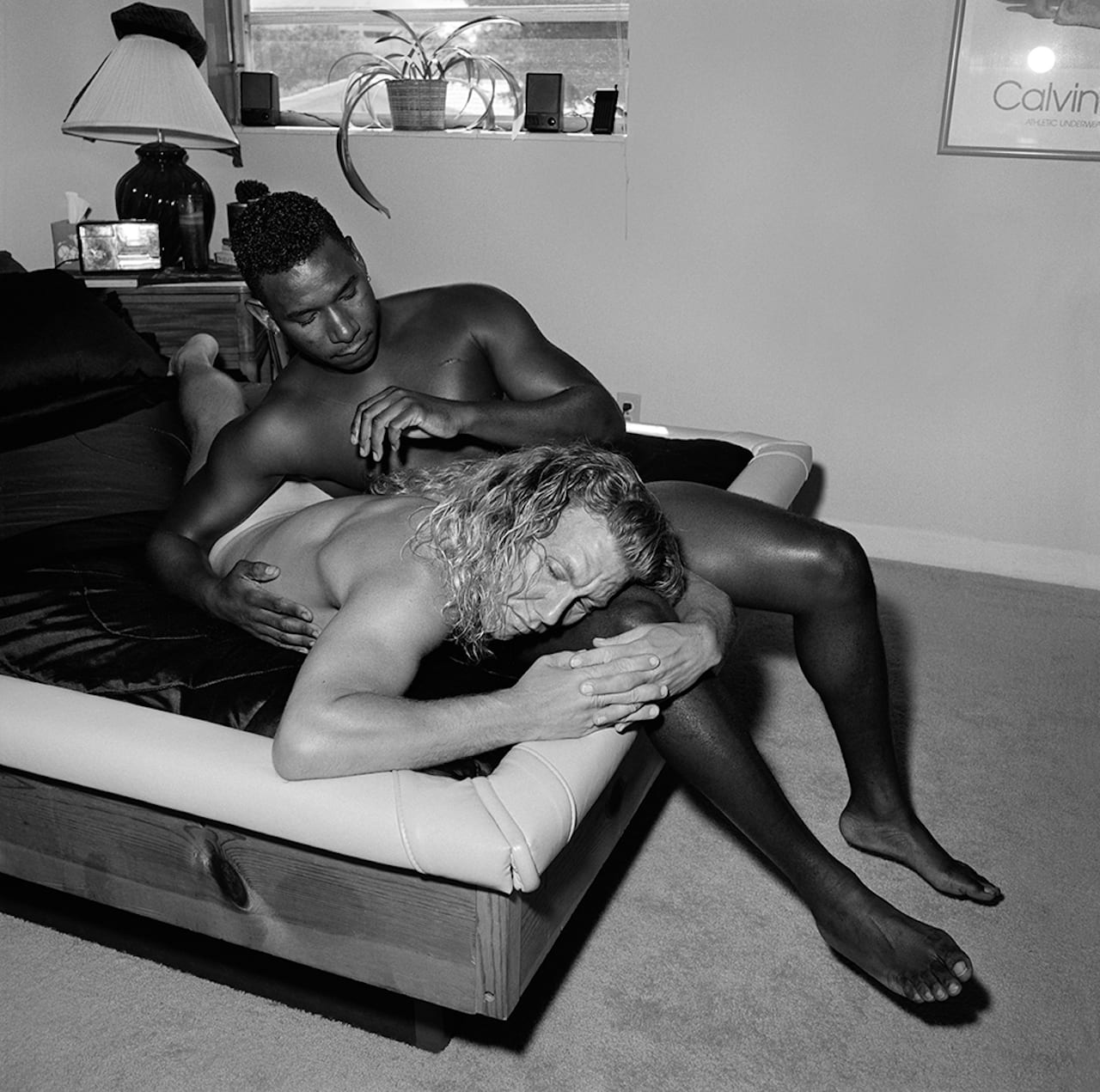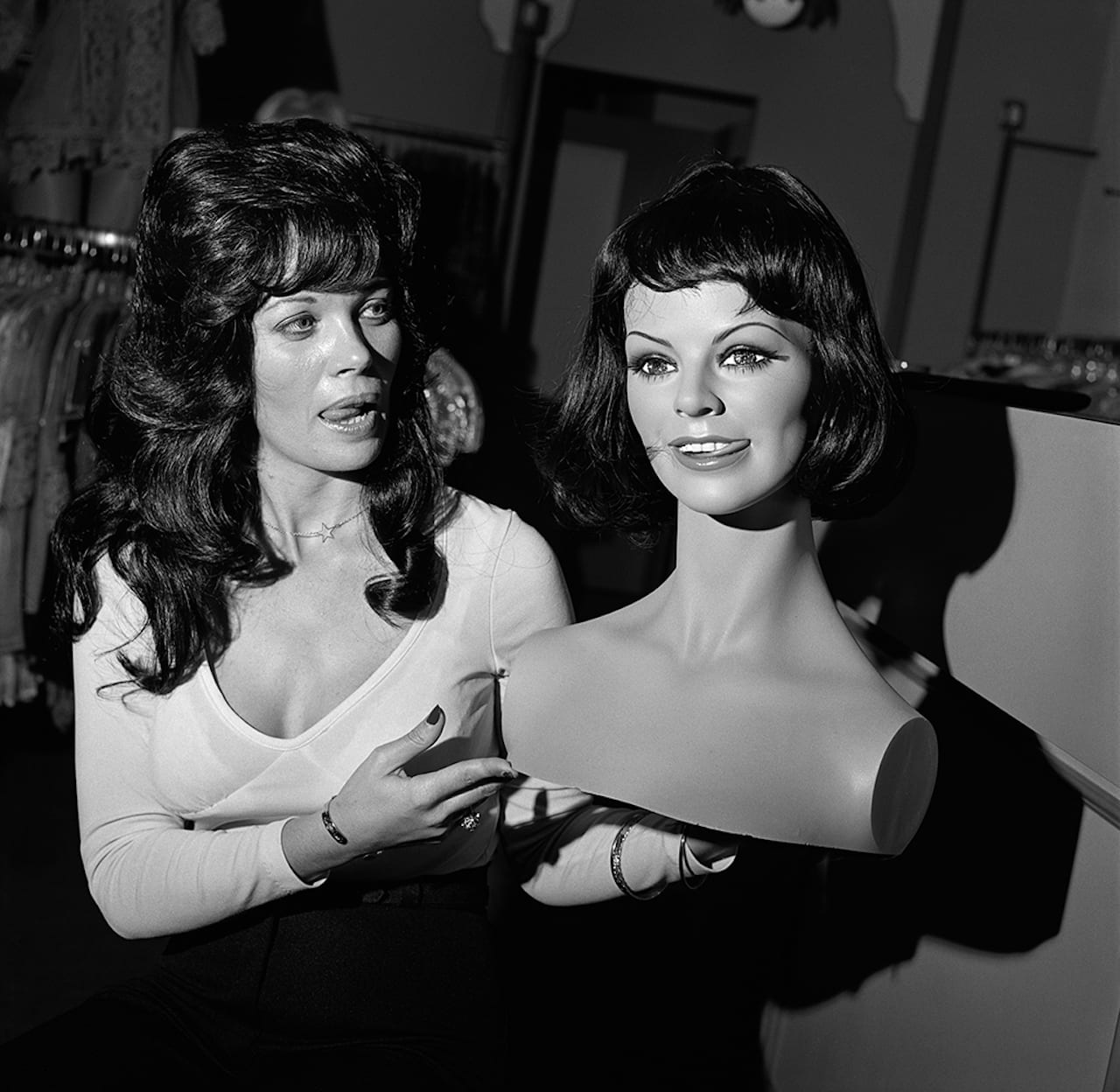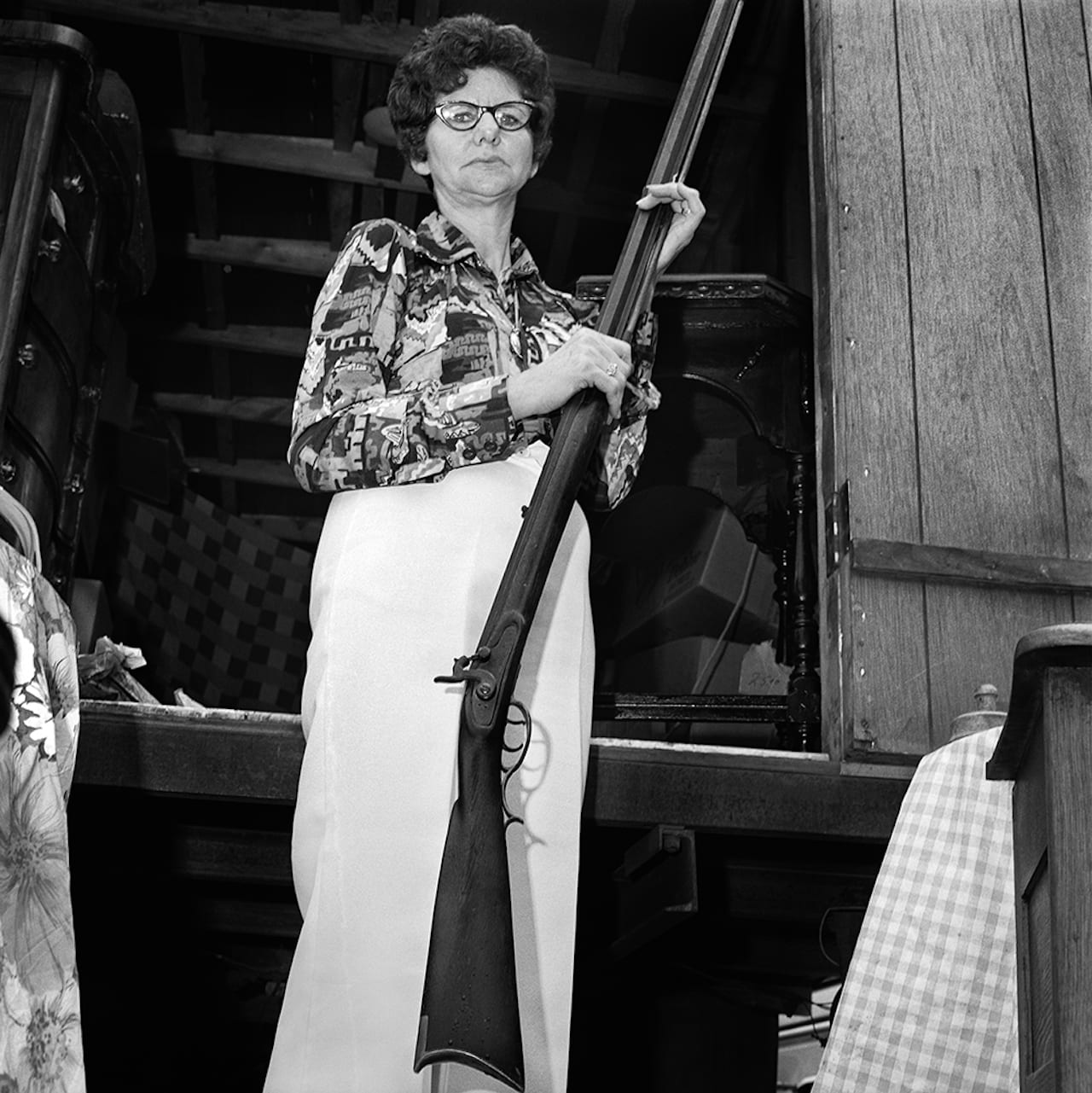Between 1930 and 1964, Liberty Theater was the name of a non-whites only cinema owned by Rosalind Fox Solomon’s family in Chattanooga, Tennessee. “There was an irony in the name. I chose Liberty Theater as the title of this book because of its multiple meanings,” she says. “In a broader context, the title relates to performance and pretence in the theatre of life.”
The photographs Liberty Theater collects together were taken through the 1970s to 90s in the southern United States, and have never before been published as a group. From Georgia to South California, through Mississippi, Tennessee and Louisiana, Solomon captured the complexity of race, class, and gender divisions.
“I had no idea that photography would change my life,” says Solomon, who began photographing when she was 48, after graduating from college, getting married and raising two children. In 1977 she moved to Washington DC, where her husband worked for the General Services Administration, and visited New York City to study privately with Lisette Model.
Solomon’s canon of work covers a wide range of social and political issues from an emotional, human angle. In the 1980s she made a series portraits of people with AIDS, with the goal of revealing “a special character, a relationship, an environment, aspects of the human struggle to survive”. In 1988 she worked on a project in Poland during a time of radical political change, and more recently, in 2010 she spent five months travelling through Israel and the West Bank by local bus with commuter workers.
Her work has been shown in nearly 30 solo exhibitions and 100 group exhibitions worldwide, with photographs held in over 50 permanent museum collections. Now 88 years old, Solomon is celebrating her 40th year as a photographer, and her third book to be published by MACK.
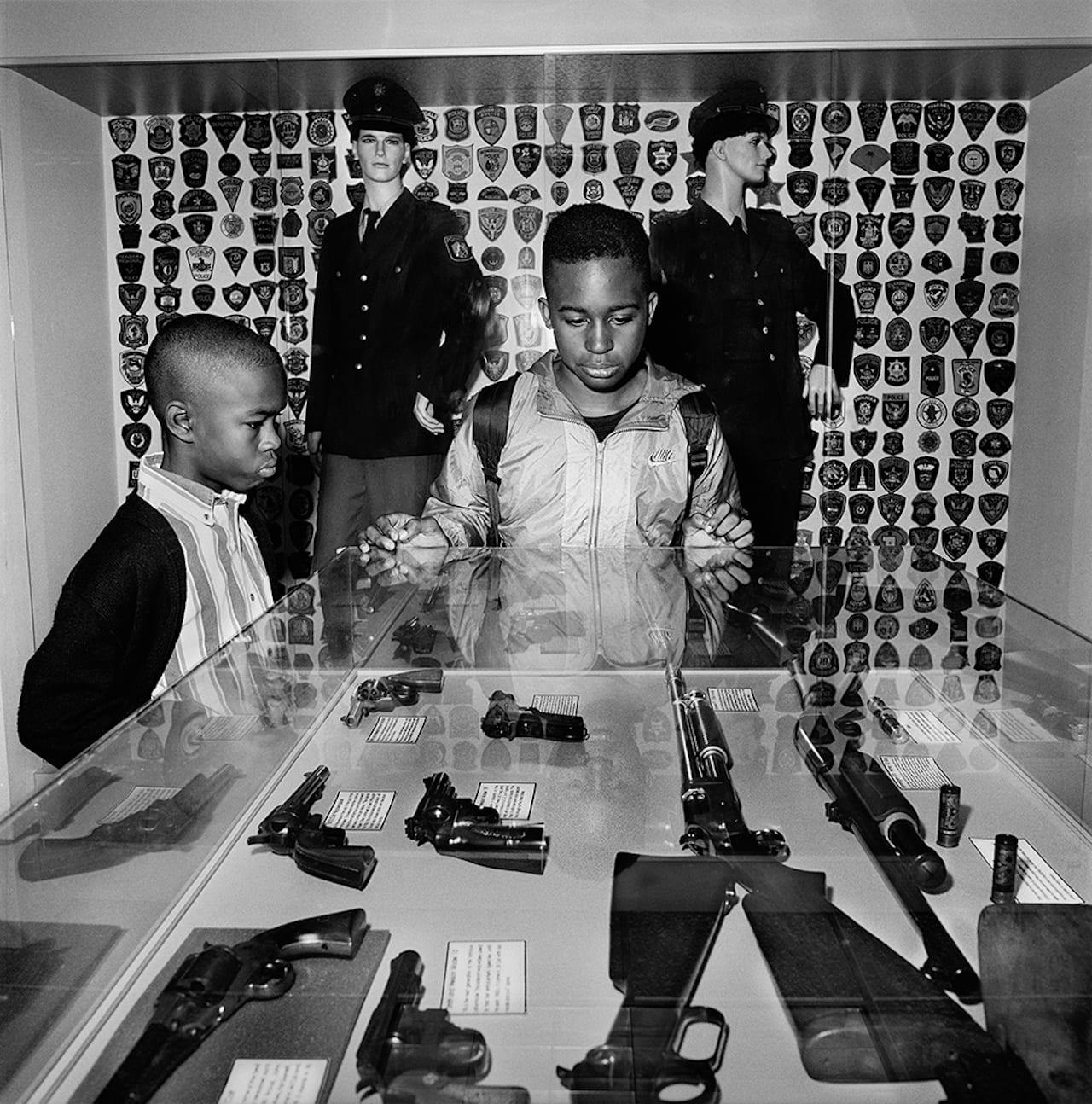
Whittled down from 400 photographs, spanning three decades of her career, the 61 images in Liberty Theater were chosen “by intuition”. “I wanted them to be able to stand alone, but to be strengthened in sequence,” Solomon explains.
Across the front and back cover a woman weeps next to a doll from her collection, followed soon after by the collapsed iron gates of a former slave plantation, a blonde woman in stiletto boots getting her hair highlighted, and white police manikins looming over two African American boys who stare into a glass cabinet of guns. As a series, the images address serious social issues of racism, white entitlement, and violence.
“These are pictures, memories, histories of encounter that we can ill afford to forget,” writes Stanley Wolukau-Wanambwa in his essay in Liberty Theater, The Play of Freedoms. “If the photographs unsettle us now, it would be well for us to question the virtues of comfort in times like these.”
The Civil Rights Act of 1964 ended segregation 54 years ago, and it’s now over 40 years since Solomon started taking the first photographs shown in Liberty Theater. Even so, we still see politicians in America who have attitudes and policies that give licence to hate. “I try to capture on film what I feel and see,” says Solomon. “The pictures in Liberty Theater are not a history or a narrative. I took many of the pictures in the 1970s and the 1980s, and some in the early 1990s. What strikes me is the relevance today of these visual poems that do not offer comfort.”
https://www.rosalindfoxsolomon.com/ Liberty Theater is available to purchase from MACK, priced at £30 www.mackbooks.co.uk Rosalind Fox Solomon’s solo exhibition dedicated to Liberty Theater is on show at the Stephen Bugler Gallery in Toronoto till 13 October https://www.bulgergallery.com/
